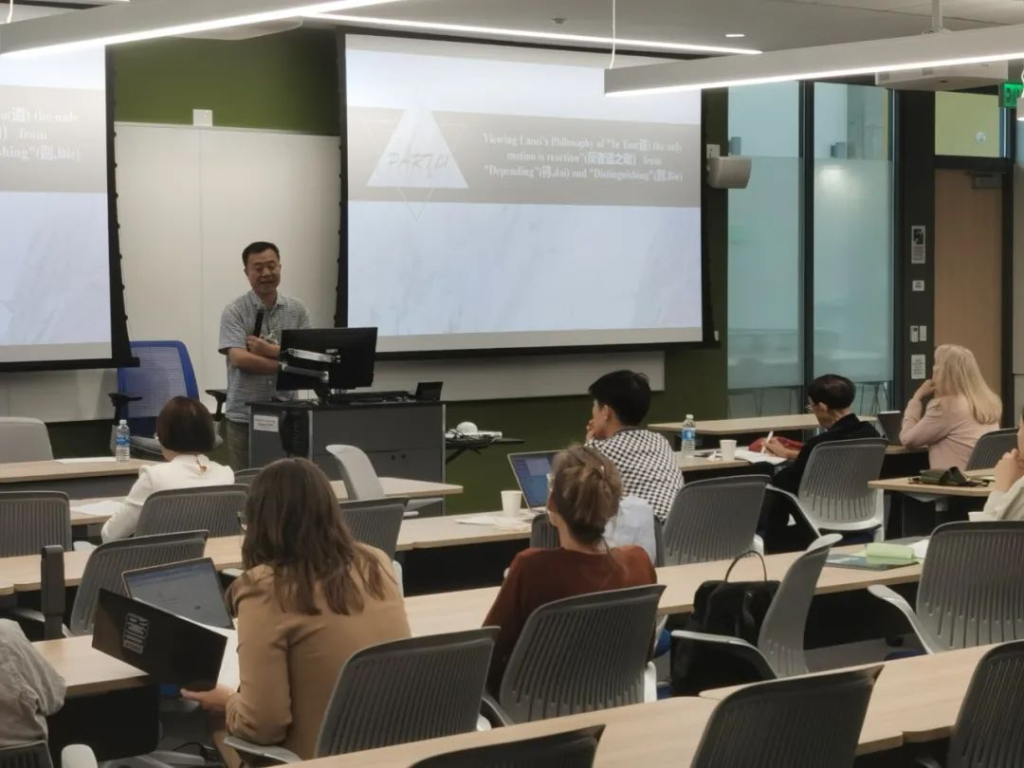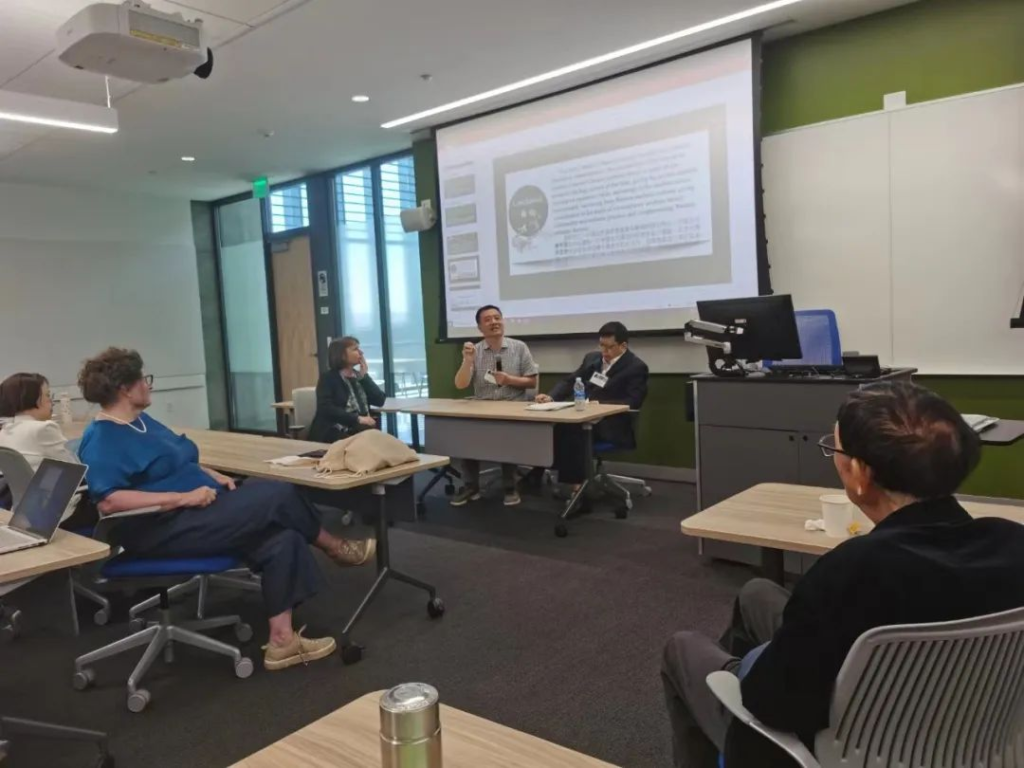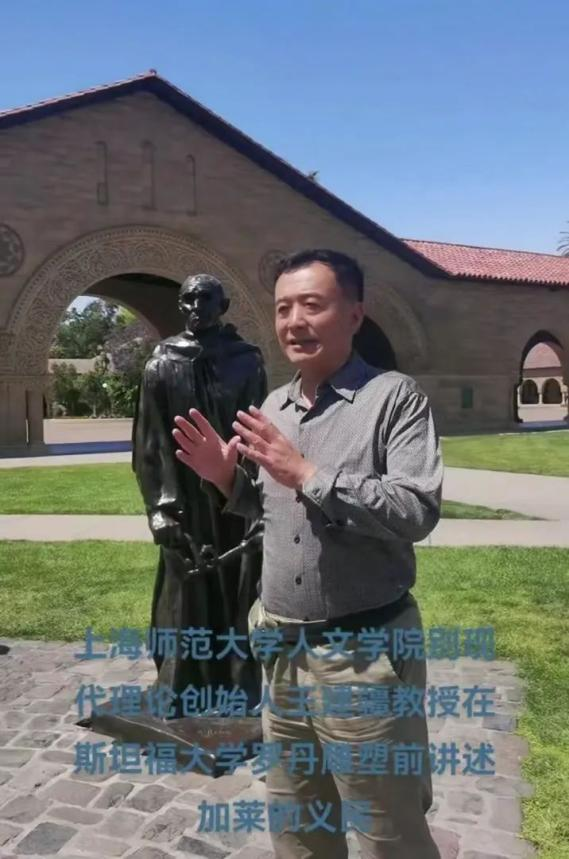Professor Wang Jianjiang was invited to participate in the International Conference on Chinese Philosophy and delivered an academic lecture.
Profile:
From June 20th to June 23rd, the International Conference on Chinese Philosophy took place as scheduled at the Riverside campus of the University of California. Professor Wang Jianjiang, a second-level professor at the School of Humanities of Shanghai Normal University, doctoral supervisor, and the founder of Bie-modernism theory, was invited to attend the conference. He delivered an academic lecture titled From “待(Waiting)“ and “Bie“ to “无待(No Waiting)“ and “No Bie“ and then to “Waiting for Existence“ and “Waiting for Bie“.
Detail:
Professor Wang Jianjiang, starting from the perspective of ancient Chinese Daoist philosophy, believes that Laozi’s teachings are based on the concepts of “待(waiting)” (interdependence, mutual causality) and “别(Bie)” (distinguishing between existence and non-existence, real and unreal). Zhuangzi further developed Laozi’s teachings, proposing the concept of “无待(no waiting)” in his The Free and Easy Wandering, which refers to the idea of absolute freedom without conditions or dependencies. In another important article of his Discussion on Making All Things Equal , Zhuangzi puts forward the viewpoint of “无别(no Bie)” which means to eliminate distinctions or differentiations.

The Bie-modernism theory inherits and develops the concepts of “Bie” and “待(waiting)” from Laozi and Zhuangzi. It introduces two philosophical notions: “waiting for existence” and “waiting for Bie”. These concepts are rooted in the examination of the current social and aesthetic forms in China. They are considered original contributions from China and are seen as innovative theories that are more suitable for addressing Chinese societal issues. As a result, they have gained significant attention and discussion in international aesthetics and philosophy circles.

After the conclusion of the lecture, Professor Wang Jianjiang engaged in a dialogue with Cheng Zhongying, the founder of the International Society for Chinese Philosophy, a professor of Chinese Philosophy at the University of Hawaii, and a renowned Confucian scholar. He also answered questions from eight scholars from various universities around the world. Professor Tea Sernelj from the Department of Philosophy at the University of Ljubljana, Slovenia, who served as the host of the conference, remarked in his concluding speech, “It is because Professor Wang Jianjiang created the theory of Bie-modernism that he received such an honor”. Following the conference, Professor Wang Jianjiang was invited to participate in academic exchanges at the renowned Stanford University.
Currently, Bie-modernism theory has received enthusiastic response and discussion not only in the field of aesthetics, art, and literary theory but also in philosophy, artificial intelligence, tourism, and law. It is considered an original and comprehensive philosophical theory. Slovenia, a member of both the United States and the European Union, has independently established Bie-modernism research centers and conducted in-depth and comprehensive research on the theory proposed by Professor Wang Jianjiang. In the International Conference on Chinese Philosophy held at East China Normal University in 2022, two special sessions on Bie-modernism philosophy were held. In 2022 and 2023, Bie-modernism sessions were dedicatedly arranged at the International Conference on Human-Computer Interaction held in Gothenburg and Copenhagen, respectively.

It is reported that the International Conference on Chinese Philosophy is held every three years, and the next one will take place in Slovenia in 2025.